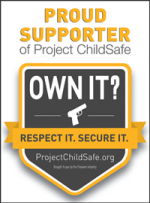The 2005 law is just one example of Congressional actions that have reduced gun-industry liability and gutted consumer protections. The result of all this legislation, as Jonathan E. Lowy, director of the legal action project at the Brady Center to Prevent Gun Violence, has noted, is that a defective BB gun can be recalled, but not a real gun with a similar defect.
The fact is, the law specifically allows suits for harm caused by a defective firearm:
The bills expressly allow suits based on knowing violations of federal or state law related to gun sales, or on traditional grounds including negligent entrustment (such as sales to a child or an obviously intoxicated person) or breach of contract. The bill also allows product liability cases involving actual injuries caused by an improperly functioning firearm (as opposed to cases of intentional misuse).It's interesting that no one calls for suits against automobile manufacturers or car dealers when one of their products end up in the hands of a drunk driver, but firearm manufacturers are supposed to be held responsible for what happens with their product when it leaves the plant.








1 comment:
Take the example of Sandy Hook, the school district and local governments created "No Gun Zones" for schools. The school had no armed protection or physical protection to the level to prevent access by an armed gunman. In preventing the teachers from being able to protect themselves, I would think that a case could be make that the school took on the responsibility of the safety of the teachers and did not provide that protection. The families of the teachers should sue the school district.
Post a Comment